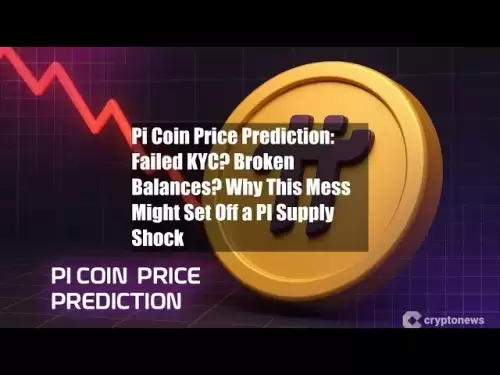-
 Bitcoin
Bitcoin $105,053.8967
0.28% -
 Ethereum
Ethereum $2,536.9103
0.49% -
 Tether USDt
Tether USDt $1.0004
0.01% -
 XRP
XRP $2.1735
1.51% -
 BNB
BNB $650.9659
-0.36% -
 Solana
Solana $146.0013
1.03% -
 USDC
USDC $1.0000
0.01% -
 Dogecoin
Dogecoin $0.1776
1.66% -
 TRON
TRON $0.2700
-1.20% -
 Cardano
Cardano $0.6367
0.08% -
 Hyperliquid
Hyperliquid $41.5154
4.36% -
 Sui
Sui $3.0303
1.00% -
 Bitcoin Cash
Bitcoin Cash $436.0395
5.03% -
 Chainlink
Chainlink $13.1926
-0.32% -
 UNUS SED LEO
UNUS SED LEO $9.0306
-0.41% -
 Stellar
Stellar $0.2595
0.37% -
 Avalanche
Avalanche $19.1528
0.37% -
 Toncoin
Toncoin $3.0008
1.46% -
 Shiba Inu
Shiba Inu $0.0...01218
4.24% -
 Hedera
Hedera $0.1597
4.06% -
 Litecoin
Litecoin $86.1907
2.88% -
 Polkadot
Polkadot $3.8078
-0.27% -
 Ethena USDe
Ethena USDe $1.0005
0.02% -
 Monero
Monero $315.3789
0.26% -
 Dai
Dai $0.9999
0.01% -
 Bitget Token
Bitget Token $4.5446
0.46% -
 Pepe
Pepe $0.0...01114
4.48% -
 Uniswap
Uniswap $7.3261
1.15% -
 Pi
Pi $0.5867
5.21% -
 Aave
Aave $276.8268
-2.40%
Why do you need to understand Ethereum network congestion and gas fees?
Understanding Ethereum network congestion and optimizing gas fees is crucial for navigating the Ethereum ecosystem effectively, minimizing transaction costs and ensuring timely processing.
Feb 21, 2025 at 04:48 am
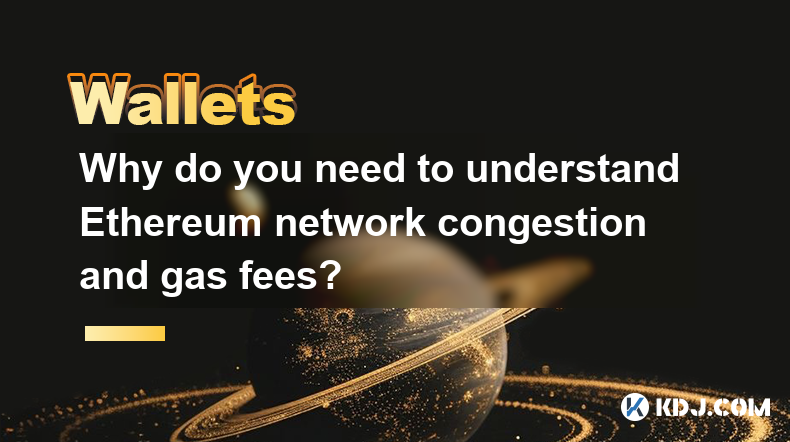
Key Points
- Understanding Ethereum Network Congestion and Gas Fees
- Gas Fees Explained
- Factors Affecting Network Congestion
- Strategies for Minimizing Gas Fees
- Impact of Ethereum Upgrades
Understanding Ethereum Network Congestion and Gas Fees
The Ethereum network is a decentralized platform that hosts a vast ecosystem of decentralized applications (dApps), non-fungible tokens (NFTs), and financial services. As usage of the network has soared, so too has congestion, leading to higher transaction fees known as gas fees. Understanding both network congestion and gas fees is crucial for navigating the Ethereum ecosystem effectively.
Gas Fees Explained
Gas fees are payments made to network validators to process transactions on the Ethereum network. They are calculated based on two factors:
- Gas Price: This is the amount of ETH you are willing to pay per unit of gas.
- Gas Limit: This is the maximum amount of gas you are willing to spend on a transaction.
The total gas fee is determined by multiplying the gas price by the gas limit.
Factors Affecting Network Congestion
Several factors can contribute to Ethereum network congestion, including:
- High Transaction Volume: When the number of transactions submitted to the network exceeds its capacity, congestion occurs.
- Complex Transactions: Transactions that involve multiple steps or interact with smart contracts require more gas to execute, contributing to higher demand.
- Network Attacks: Malicious actors can deliberately spam the network with transactions, causing congestion and inflating gas fees.
Strategies for Minimizing Gas Fees
Various strategies can be employed to minimize gas fees on Ethereum:
- Choose Low-Congestion Times: Network activity tends to be lower during off-peak hours, leading to lower gas fees.
- Use Layer-2 Solutions: Layer-2 networks, such as Polygon and Optimism, offer faster and cheaper alternatives to the main Ethereum network.
- Optimize Transactions: Batching transactions, reducing gas limits, and using gas price estimation tools can help optimize gas consumption.
- Consider Using Alternative Blockchains: Other blockchains, such as Binance Smart Chain and Solana, may offer lower gas fees for specific use cases.
Impact of Ethereum Upgrades
Ethereum is undergoing significant upgrades, including the upcoming Ethereum 2.0, which will introduce sharding and proof-of-stake consensus. These upgrades are expected to significantly improve scalability, reducing network congestion and gas fees.
FAQs
- What is the average gas fee on Ethereum? The average gas fee on Ethereum varies depending on network congestion. However, it typically ranges from a few cents to several dollars.
- Can gas fees be zero? Yes, it is possible to set a gas price of zero, but your transaction may take longer to process or fail entirely.
- Why are gas fees so high? Gas fees are high due to high demand for network space and the limited availability of validators to process transactions.
- How do I estimate gas fees? Gas fee estimation tools, such as Etherscan, can help you estimate the appropriate gas price for your transaction.
- Are gas fees refundable? Gas fees are not refundable, regardless of whether your transaction succeeds or fails.
Disclaimer:info@kdj.com
The information provided is not trading advice. kdj.com does not assume any responsibility for any investments made based on the information provided in this article. Cryptocurrencies are highly volatile and it is highly recommended that you invest with caution after thorough research!
If you believe that the content used on this website infringes your copyright, please contact us immediately (info@kdj.com) and we will delete it promptly.
- Grayscale Launches Bitcoin Adopters ETF To Track Performance Of Companies With Bitcoin Holdings
- 2025-06-14 19:50:12
- Pi Network (PI) Cryptocurrency Shows Signs of Stabilization After Prolonged Decline
- 2025-06-14 19:50:12
- Despite the recent crash, Solana (SOL) price has rebounded quickly and trades near $150
- 2025-06-14 19:45:13
- NEAR Protocol Expands its Chain Signatures Framework to Support EdDSA
- 2025-06-14 19:45:13
- Neo Pepe Coin Presale Could Be the Most Exciting Meme Coin Drop of 2025
- 2025-06-14 19:40:12
- Market Moves to Watch: Web3 ai's 1,747% ROI Pulls in Traders as HYPE Surges and BNB Gains on Upgrades
- 2025-06-14 19:35:12
Related knowledge
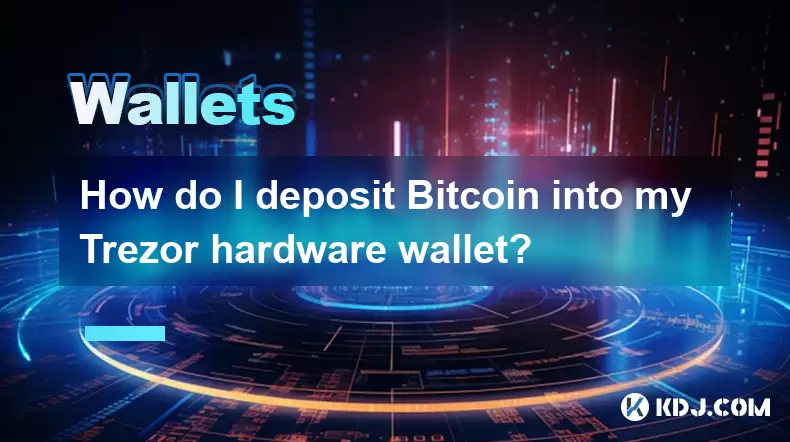
How do I deposit Bitcoin into my Trezor hardware wallet?
Jun 14,2025 at 12:29pm
What is a Trezor Hardware Wallet?A Trezor hardware wallet is a secure device designed to store cryptocurrencies offline, protecting them from online threats. Unlike software wallets, which are vulnerable to hacking and malware, Trezor stores private keys on the physical device itself. This ensures that transactions can only be approved by physically int...
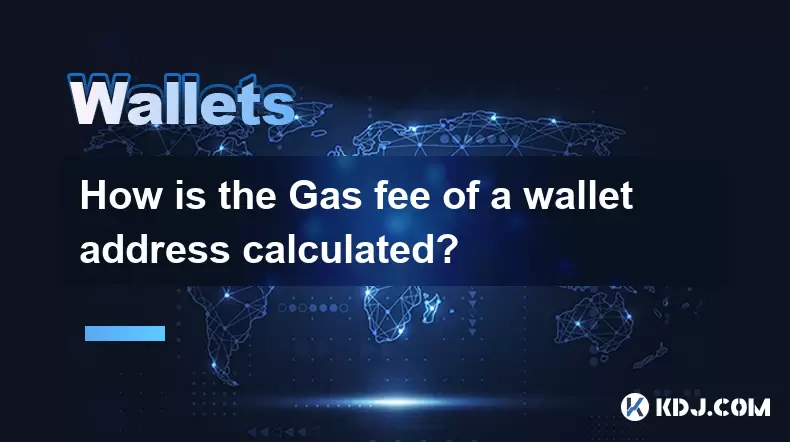
How is the Gas fee of a wallet address calculated?
Jun 14,2025 at 07:57pm
Understanding the Basics of Gas Fees in Blockchain TransactionsIn the cryptocurrency ecosystem, particularly within Ethereum-based networks, a Gas fee is an essential component of executing transactions or smart contract operations. The Gas fee serves as compensation for miners or validators who process and confirm transactions on the blockchain. It is ...
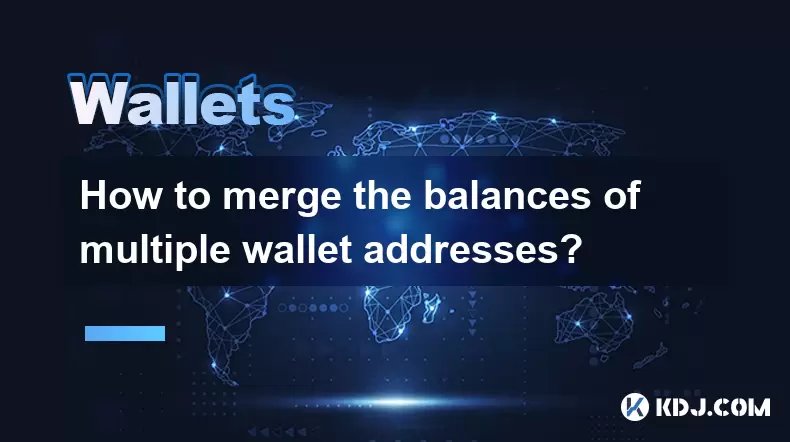
How to merge the balances of multiple wallet addresses?
Jun 13,2025 at 06:21pm
Understanding the Concept of Merging Wallet BalancesMerging the balances of multiple wallet addresses involves consolidating funds from different cryptocurrency wallets into a single address or account. This process is commonly undertaken by users who manage several wallets for security, diversification, or organizational purposes. Merging balances can ...
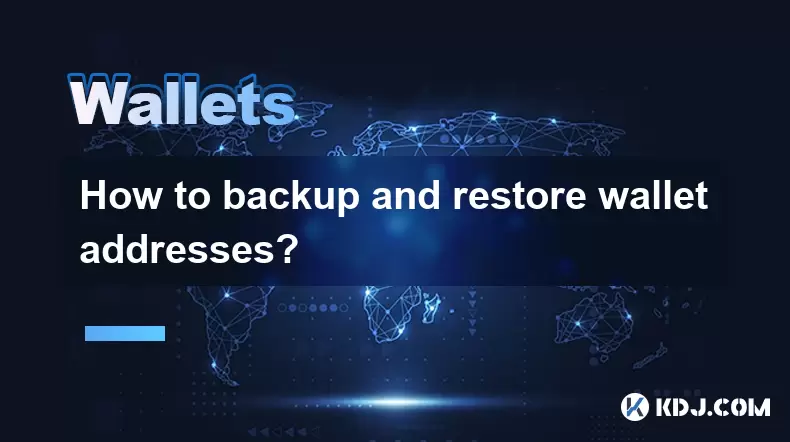
How to backup and restore wallet addresses?
Jun 14,2025 at 03:21pm
Understanding Wallet Addresses in CryptocurrencyIn the world of cryptocurrency, a wallet address is a unique identifier that allows users to send and receive digital assets. It functions similarly to an email address or bank account number. Each wallet address is associated with a private key, which grants access to the funds stored at that address. Los...
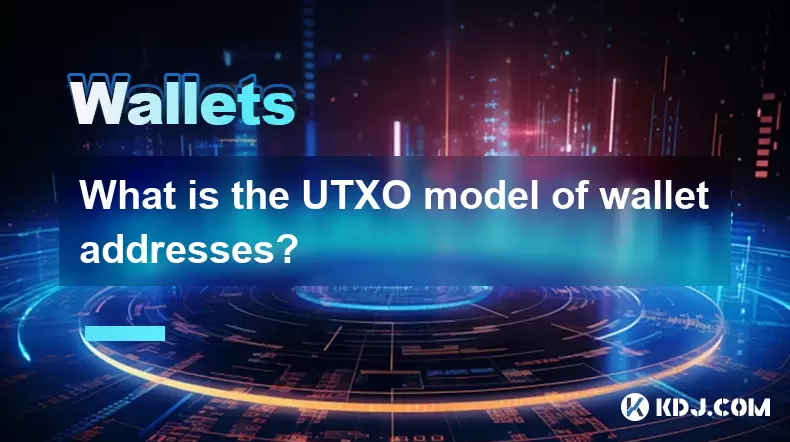
What is the UTXO model of wallet addresses?
Jun 14,2025 at 03:01am
Understanding the UTXO Model in CryptocurrencyThe UTXO (Unspent Transaction Output) model is a fundamental concept in blockchain technology, particularly in cryptocurrencies like Bitcoin. Unlike account-based models used by some other blockchains, such as Ethereum, the UTXO model functions more like physical cash transactions. Each transaction consumes ...
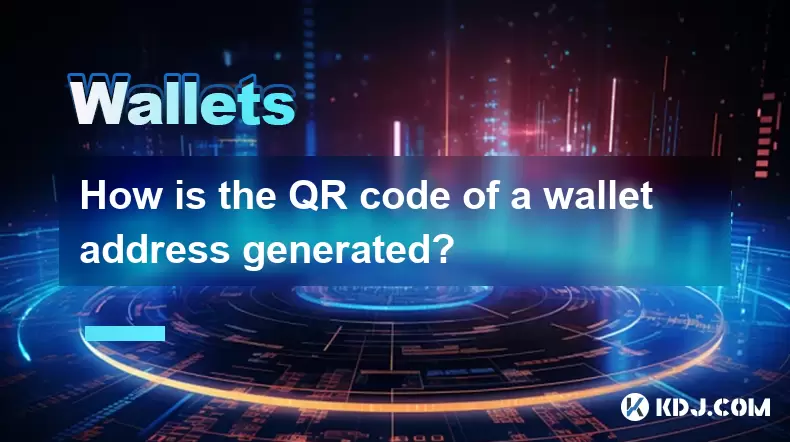
How is the QR code of a wallet address generated?
Jun 13,2025 at 10:49pm
Understanding the Basics of a Wallet AddressA wallet address is a unique identifier used in blockchain networks to send and receive cryptocurrencies. It is derived from a pair of cryptographic keys — a private key and a public key. The private key is kept secret and grants control over the funds, while the public key is used to generate the wallet addre...

How do I deposit Bitcoin into my Trezor hardware wallet?
Jun 14,2025 at 12:29pm
What is a Trezor Hardware Wallet?A Trezor hardware wallet is a secure device designed to store cryptocurrencies offline, protecting them from online threats. Unlike software wallets, which are vulnerable to hacking and malware, Trezor stores private keys on the physical device itself. This ensures that transactions can only be approved by physically int...

How is the Gas fee of a wallet address calculated?
Jun 14,2025 at 07:57pm
Understanding the Basics of Gas Fees in Blockchain TransactionsIn the cryptocurrency ecosystem, particularly within Ethereum-based networks, a Gas fee is an essential component of executing transactions or smart contract operations. The Gas fee serves as compensation for miners or validators who process and confirm transactions on the blockchain. It is ...

How to merge the balances of multiple wallet addresses?
Jun 13,2025 at 06:21pm
Understanding the Concept of Merging Wallet BalancesMerging the balances of multiple wallet addresses involves consolidating funds from different cryptocurrency wallets into a single address or account. This process is commonly undertaken by users who manage several wallets for security, diversification, or organizational purposes. Merging balances can ...

How to backup and restore wallet addresses?
Jun 14,2025 at 03:21pm
Understanding Wallet Addresses in CryptocurrencyIn the world of cryptocurrency, a wallet address is a unique identifier that allows users to send and receive digital assets. It functions similarly to an email address or bank account number. Each wallet address is associated with a private key, which grants access to the funds stored at that address. Los...

What is the UTXO model of wallet addresses?
Jun 14,2025 at 03:01am
Understanding the UTXO Model in CryptocurrencyThe UTXO (Unspent Transaction Output) model is a fundamental concept in blockchain technology, particularly in cryptocurrencies like Bitcoin. Unlike account-based models used by some other blockchains, such as Ethereum, the UTXO model functions more like physical cash transactions. Each transaction consumes ...

How is the QR code of a wallet address generated?
Jun 13,2025 at 10:49pm
Understanding the Basics of a Wallet AddressA wallet address is a unique identifier used in blockchain networks to send and receive cryptocurrencies. It is derived from a pair of cryptographic keys — a private key and a public key. The private key is kept secret and grants control over the funds, while the public key is used to generate the wallet addre...
See all articles


























